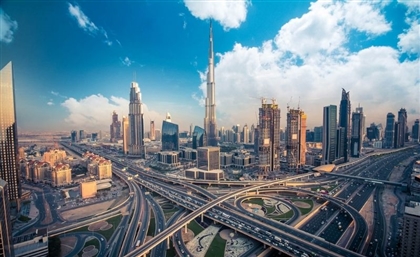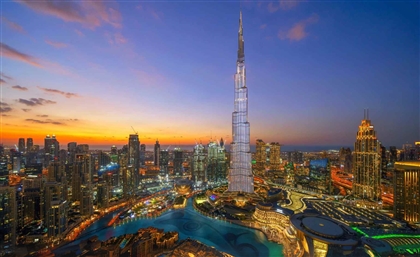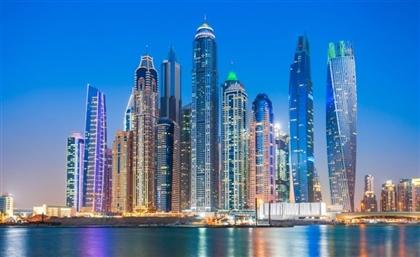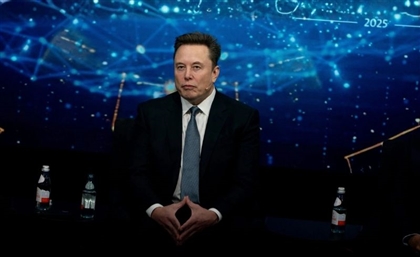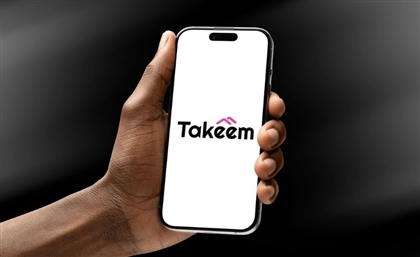Nadeera: The Lebanese Startup Digitising Recycling in the Middle East
Looking to play a key role in reducing waste, the startup serves more than 80 communities across the MENA region.
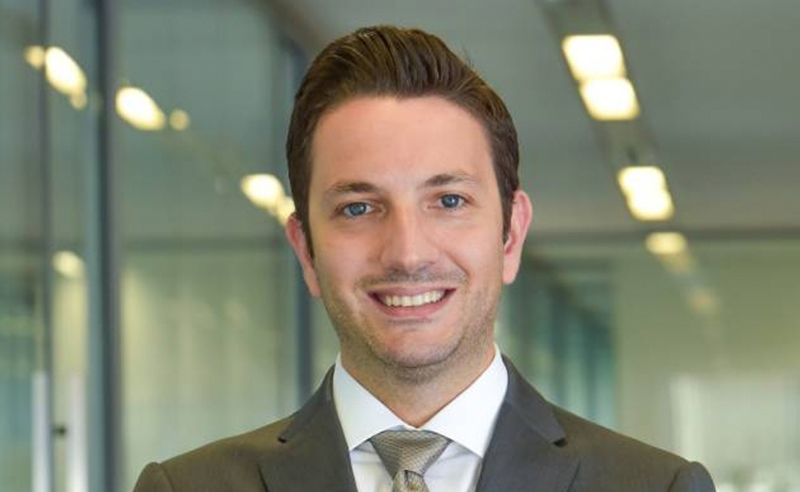
Lebanese-based startup Nadeera is using digital solutions to solve the problem of recycling and waste management in the Middle East. Founded in 2020 by Rabih El Chaar and Reem Khattar, the startup works alongside communities in Lebanon, the UAE, and more recently Saudi Arabia to provide people with information on how and where to recycle while also encouraging them to change their behaviour towards waste management.
El Chaar first became aware of the problem of recycling after witnessing the 2015 waste management crisis in Lebanon, where one of the biggest and most heavily relied on landfills, Naameh, closed due to unsanitary conditions and capacity issues. “Waste was on the street,” Rabih El Chaar, Co-Founder of Nadeera, tells StartupScene. “You just exit your house and you see a big wave of waste that is piling up. That brought awareness to a lot of people, including myself, that we waste too much. And we don't do enough to reduce our waste.”
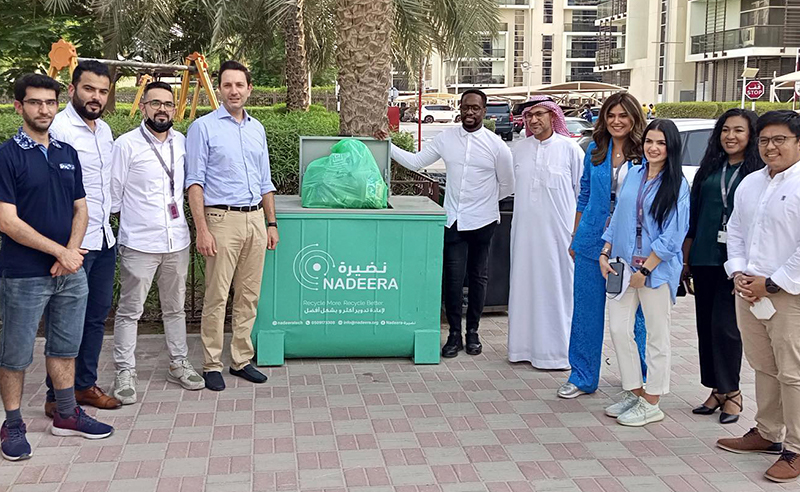
The problem of waste is not only limited to Lebanon. In the MENA region, an estimated 90% to 95% of municipal waste goes to landfills, according to research published by Multidisciplinary Digital Publishing Institute (MDPI).
Looking to play a key role in reducing waste, the startup works with leading companies such as Nestle, PepsiCo and Talabat to scale its presence in the UAE, and serves more than 80 communities across the region. It also aims to expand to Egypt and South Africa, reaching 500 communities by 2024.
CHANGING PEOPLE’S BEHAVIOUR
Recycling is not just a policy issue, it is also a behavioural one.
To encourage green habits, the founders first had to learn why many people still don’t recycle. As El Chaar discovered, it was mainly due to a lack of awareness, convenience, and not having the right systems in place.
“People today don’t have enough awareness about recycling, where to recycle, what to recycle, the benefits of recycling, and also they don't know how to recycle,” says El Chaar. “So, the awareness is low. And the value chain complexity is also very high. Even if you recycle at home, you get your recycling bags sorted and you give it to a recycler, it is a very tedious journey. Sometimes you put it in the bin and then you see a truck coming and putting everything together and taking it to the landfill, and you get disappointed. So, you need to crack both the awareness part and the value chain part.”

Nadeera created a digital app for users to learn more about recycling, and incorporated an AI feature to determine the recyclability of an item. “So, you take a picture, you upload it, and it tells you if this item is recyclable or not. The critical factor to success is getting users to sort their waste from source,” El Chaar adds.
The company also provides smart bins with access control, enabling users to deposit their recyclables without worrying about contamination. “If you're walking on the street with a garbage bag, you cannot just throw it in it,” adds El Chaar. “It only opens for our users via a smartphone, so it doesn't get the recyclables contaminated.” Once the bin is full, a truck is dispatched to collect the waste and send it for recycling.
More importantly, however, Nadeera traces the waste bags through QR codes to determine the quality of sorting by users. This way, the startup will have quality data on recycling and in some cases, give users cashbacks if they have good recycling ratings to keep them engaged and incentivized.
FOCUSING ON PROFITABILITY
Climate tech startups are garnering a lot of attention lately, especially with the MENA region hosting two consecutive editions of the UN’s Conferences of the Parties (COP) in the last two years: COP27 in Egypt in 2022, and the COP28 in the UAE in 2023.

According to a recent report by Magnitt, climate tech startups in the region have recorded a total of $65.1 million in funding from 2018-2022, growing by 11 times over the past five years. The focus of climate tech also has continued into this year, with $40 million raised in the first half of 2023.
Yet, the key for startups operating in this space, like those in other sectors, is to be profitable.
“Climate tech is high on the agenda and it is welcome by companies to have these conversations,” says El Chaar. “But then very quickly, the conversation becomes, how do you make money and how are you profitable? So, you go back to the fundamentals of being a startup and being able to demonstrate your financial viability. Nobody is going to just invest in you because you're a climate tech company.”
As a social enterprise, Nadeera has to combine profitability with making a social impact. The more money it makes, the more it can invest back into achieving its environmental and social objectives.
To date, the startup has raised $1 million between grants and investments, and is now amid a $4 million seed round to continue expanding across the region.
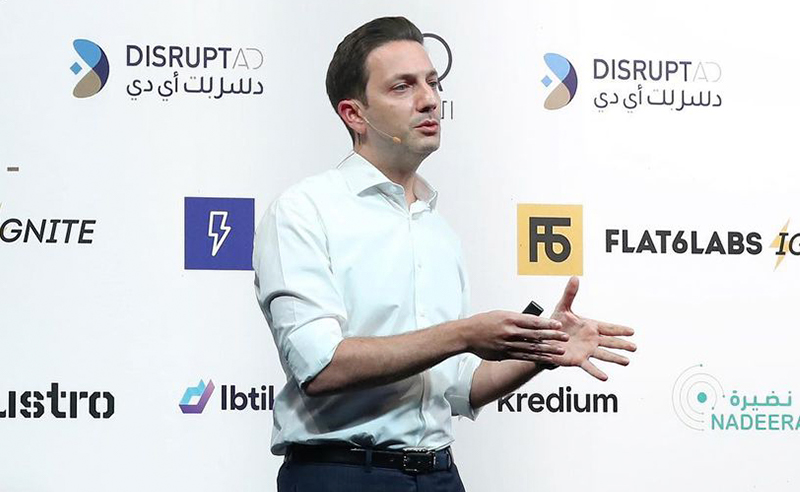
In between investment rounds, the startup has relied on working with municipalities and developers, facilitating recycling for residents in closed gated communities. “We were fortunate enough to secure enough projects to date to be able to be present in many communities,” says El Chaar. “These projects were funded by either FMCG players, government entities or developers and community management companies.”
OVERCOMING LACK OF LEGISLATION
Although the region has not yet normalised strict recycling practices, sustainability appears to be gaining steam, especially when it comes to reducing waste and preserving natural resources.
In the UAE, the circular economy council approved 22 policies to accelerate the country’s transition to a circular economy in food, manufacturing, infrastructure, and transport sectors, as well as shed light on trends in this space, from waste-to-resource to remanufacturing and bio-based materials, amongst others.
This interest in sustainability has led Nadeera to be present in many communities across the region while also playing a key role in sustainable economic development.
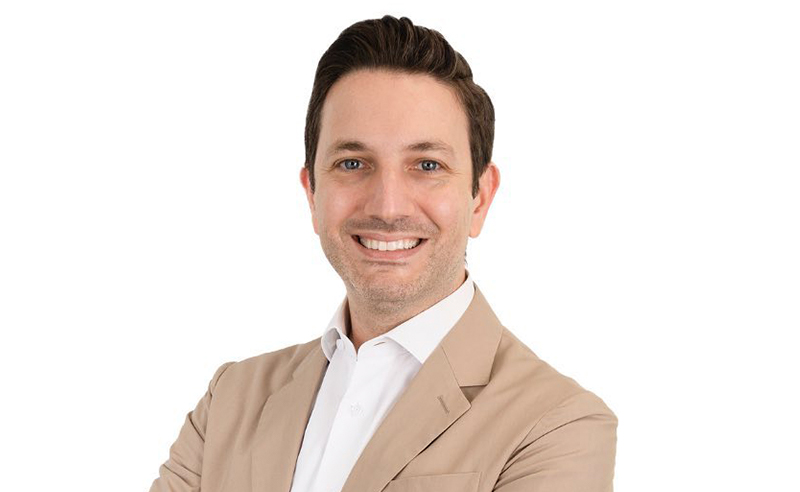
“Nadeera operates in countries where recycling measures may not be enforced, yet through the effective use of technology, we have successfully influenced people's behaviour to adopt better recycling practices,” says El Chaar. “It's all about behavioural change, and that is one of the toughest things that you can do.”
- Previous Article Saudi Fintech Tameed Raises $15 Million in Series A Round
- Next Article Egypt Ventures Invested $12 Million in Local Startup Ecosystem



